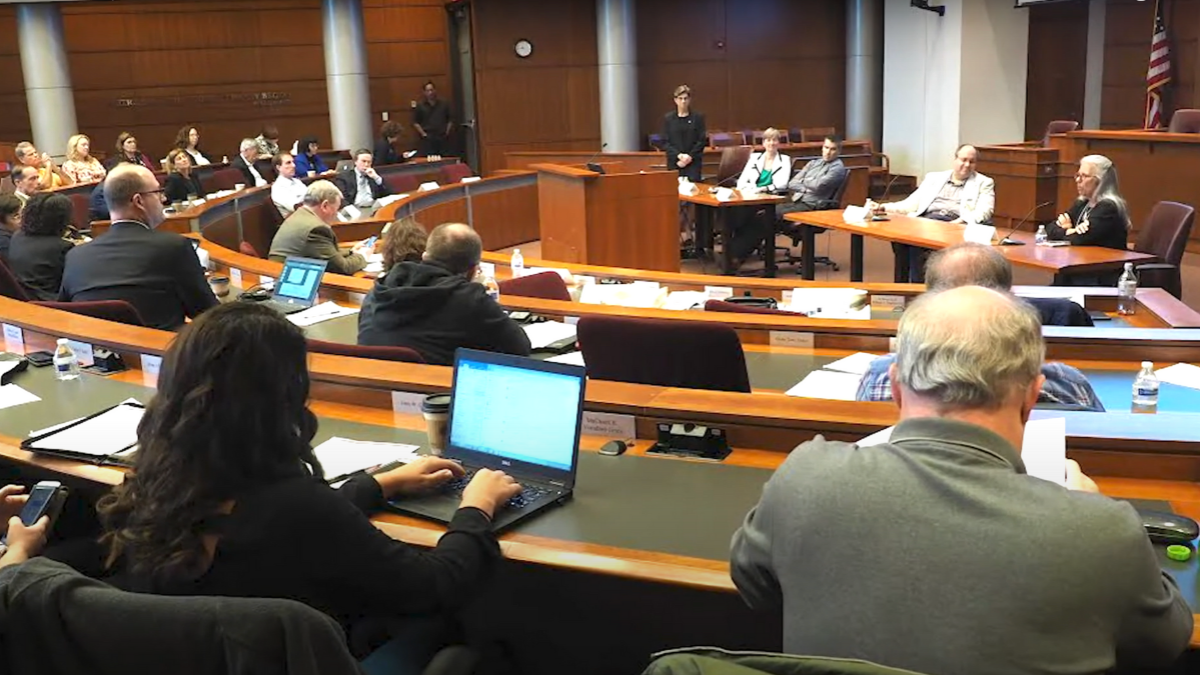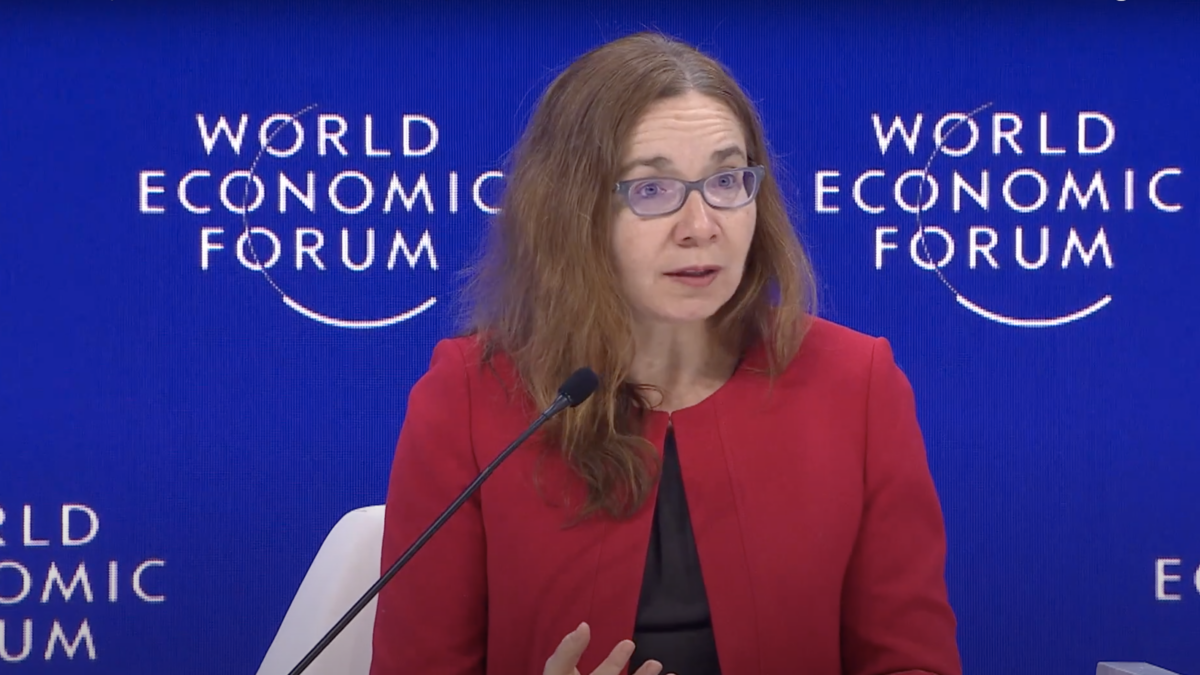
The episodes of morally outraged students on some college campus, clothing themselves as the desperately oppressed to shout down some speaker whose ideas they have caricatured beyond recognition, come more and more frequently these days.
The morose chants are also more and more difficult to distinguish from self-parody. “My oppression is not a delusion!” was the mantra of a group of students at Holy Cross, a Massachusetts liberal arts college with an annual cost of attendance of nearly $55,000, as they obstreperously filed out of a room a week ago to protest a talk by the political writer Heather Mac Donald.
These dreadfully disadvantaged members of the human species, decked out in pricey togs and angrily recording the goings-on with their shiny new iPhones, were determined to not hear a speaker peaceably present an intellectual perspective that they had not troubled themselves to try to understand. In taking seats and then deserting them after security had closed access to the room, they also made that decision for others.
A few days before this, Mac Donald visited my own campus of Bucknell University. The aggrieved and afflicted here (who are paying annual fees still higher than those of the persecuted victims at Holy Cross) were not quite so aggressive, preferring to chant melancholy slogans of suffering and indignation outside the hall where Mac Donald was to speak. But they admitted in interviews after the fact that their intention too was to drown out the talk, and their chants included the fatuous claim that students at Bucknell are physically unsafe because of the presence on the faculty of those—including myself—who had organized the event.
Having failed in their effort to prevent the talk from happening altogether, these intellectually incurious students then flocked to an alternative event that had been intentionally scheduled at the same time as Mac Donald’s. Here, they were told the Mac Donald talk was an act of violence that jeopardized the very existence of the people at the alternative event.
Speakers insulted Mac Donald and condemned the students who attended her talk as misguided and wrong. There was, they claimed, no need to hear her to know what she believed. The students present were then directed to engage in “self-care” projects that included painting smooth stones (“kindness rocks”) with cheery, therapeutic messages to help them emotionally cope with their crushing burden of subjugation and trauma.
How Do Young People Get This Way?
What leads young people in elite institutions of higher education in the richest country in the world to have such a delusional view of their situation and such a destructive attitude about the core project of those institutions: learning via exposure to a wide range of differing ideas and arguments?
The easy answer, which rings with a fair amount of truth, has to do with the not so young people on the faculty and in administration who help produce and legitimize the students’ attitude through their pedagogy and example. But this is just to push the question back one level. How do the people responsible for teaching the students come to have such a worldview, so antithetical to the traditional meaning of higher education?
Believe it or not, much of it can be connected to deep feelings of guilt. If these perpetually affronted young people do not look much like they are experiencing guilt, this is because their way of dealing with their guilt is so convoluted.
Guilt is a common human emotion. We are wired to be acutely sensitive to our perceived moral responsibilities for others, even when the case for such responsibility is weak or non-existent. Doubtless some of this has to do with our fear of being judged as morally insensitive and uncaring and our trepidation about the social risks for us that such a classification carries.
But when we see others who are not doing as well as we are, we need a method for making sense of that. And we avidly desire to be of clear conscience, to think ourselves and to be thought of by others as good people with good intentions who generally do good things.
Usually That’s the Role of Religion
Many religions devote considerable energy to elaborating theological and eschatological principles that explain human guilt and provide supernatural relief for its stain. We may be unavoidably guilty, and that such guilt may stand in the way of our ability to become the kind of creatures we need to be to attain redemption. But God acts to redeem us despite ourselves, and if we accept that offering, we need no longer be consumed and rotted from within by our guilt.
The woke have largely rejected those explicitly religious means of purging guilt. They are disproportionately secularist in their outlook, and when they are religious, they tend to adhere to the most anti-theological and anti-moralist varieties of religious thought.
They are, however, tremendously concerned about guilt. They see suffering everywhere they look, and they lack a moral discourse to explain it as, for example, an inevitable aspect of a fallen human condition, or perhaps as a proving ground for the human spirit.
Unchanneled by moral narratives of depth akin to Judeo-Christian religious frameworks, arguably no emotion can move an individual to more depravity than his guilt for the suffering of others. The woke attempt to leap over their sense of their guilt by furiously endeavoring to transform themselves into suffering victims of oppression, as this is the only morally feasible position to occupy in their distorted ideological system. All who are not victims of oppression must, by definition, be among its perpetrators, and they cannot be sufficiently despised.
What Secular Academics Do with Their Guilt
This obsession with guilt in academia produces a number of pathological conditions. It requires rejecting the traditional academic framework for inquiry into true knowledge, as this cannot withstand the blast furnace of the moral certainty of wokeness. In the traditional scholarly view, the pursuit of knowledge in institutions of higher education required two central virtues, each one difficult to establish as social practice and in the human self: humility and civility.
Humility was needed because the scholar and student alike had to recognize that they might be wrong about things, even important things, and that others might be right, or at least closer to right. To bluster of one’s righteousness, to insult interlocuters with positions unlike our own, to parade arrogantly and narcissistically as though one has figured everything out, is to be the very counter-emblem of humility. But such an attitude makes sense when one has turned one’s guilt into the simple-minded moral universe of woke goodness and non-woke badness.
Civility was also a requirement in the traditional academic view. Solving difficult problems is made more difficult by eliminating potentially fruitful perspectives in advance, so it was understood that any perspective that rigorously attempts to justify itself argumentatively and empirically ought to be included in the discussion.
In a wide field of debate, disagreement and conflict are inevitable, and methods were needed to keep such conflict sufficiently bounded so as not to disrupt the orderly functioning of the university. The ad hominem attack was recognized as illicit and dangerous, so a courteous, professional demeanor was a requirement for entry into the debate.
This civility was undergirded by the assumption of good will and membership in a common moral community on the part of interlocutors. Academic debate might be vigorous, but it must not be forgotten that such debate is not war, and it therefore must not assume victory alone as the ultimate value. The folks on the other side of the debate are members of the same broader moral community and cannot be denied the same respect and the opportunity to present their arguments that we demand of them.
All this disappears in a world where those on the other side are perceived not as fellows of good will engaged in the same work we are engaged in, but instead as agents of pure evil set on stamping out the existence of hapless victims.
There is simply no future for a higher education system based in this distorted mindset. And it can no longer be doubted that this is the world the woke cultists think we are in.









